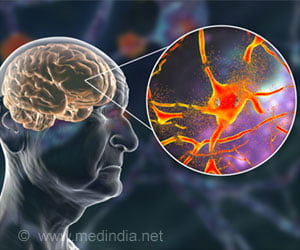Researchers are working on a novel biosensor that can be used for the early detection of Alzheimer's disease and other disorders.
- A less invasive and less expensive sensor is being developed by researchers to help in the screening of Alzheimer’s disease and other diseases
- It works by detecting a small protein, Tumour Necrosis Factor alpha (TNF alpha), which is involved with inflammation in the body
- The team has finished the proof-of-concept stage and will proceed to clinical trials
Diseases Linked with Abnormalities in Cytokine Levels
Anomalies in cytokine levels have been related to a wide range of disorders, including Alzheimer’s, cancer, heart disease, autoimmune, and cardiovascular disease, according to a study. TNF alpha can operate as a biomarker and a measurable characteristic that can signal health status for the Alzheimer’s disease detection sensor.COVID-19 can also produce inflammatory reactions known as ‘cytokine storms,’ and research has shown that cytokine inhibitors are an effective treatment for boosting survival prospects.
Minimally Invasive and Cost-Effective Sensor for Detecting Alzheimer’s Disease
“Our goal is to develop a sensor that’s less invasive, less expensive and simpler to use than existing methods,” says Engineering Science Assistant Professor Michael Adachi, the project’s co-lead. “These sensors are also small and have the potential to be placed in doctor’s offices to help diagnose different diseases, including Alzheimer’s disease.”According to Adachi, the biosensor is extraordinarily sensitive and can detect TNF alpha at extremely low quantities (10 fM) - far below the amounts observed in healthy blood samples (200-300 fM).
Current Alzheimer’s Detection Technologies and Future Possibilities
Current Alzheimer’s disease testing comprises a questionnaire to identify whether a patient has symptoms, brain imaging, or a spinal tap process, which includes testing for biomarker proteins in the cerebral spinal fluid.The scientists accomplished the proof-of-concept stage, demonstrating that the two-electrode diode sensor is successful in detecting TNF alpha in a laboratory setting, according to the research published in the journal Nature Communications.
The biosensor will then be tested in clinical trials to ensure that it can identify biomarker proteins in blood samples containing a variety of interfering proteins and other chemicals.
“We will continue testing the device’s ability to detect the same proteins using body fluid like blood samples,” says engineering science PhD student Hamidreza Ghanbari. “The other objective is to use the same device but a different receptor to detect proteins that are more specific to Alzheimer’s disease.”
“We need to be sure each sensor is made exactly the same to the tolerance required for the concentration we’re trying to predict or detect, and that’s the real challenge,” commented Professor Karen Kavanagh.
Source-Medindia










